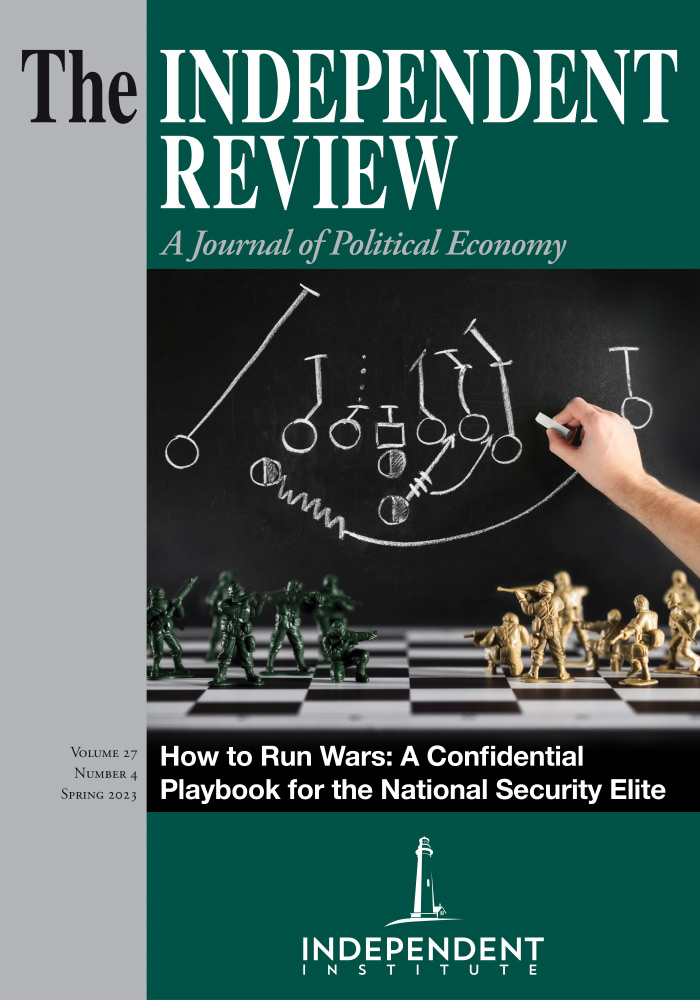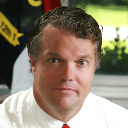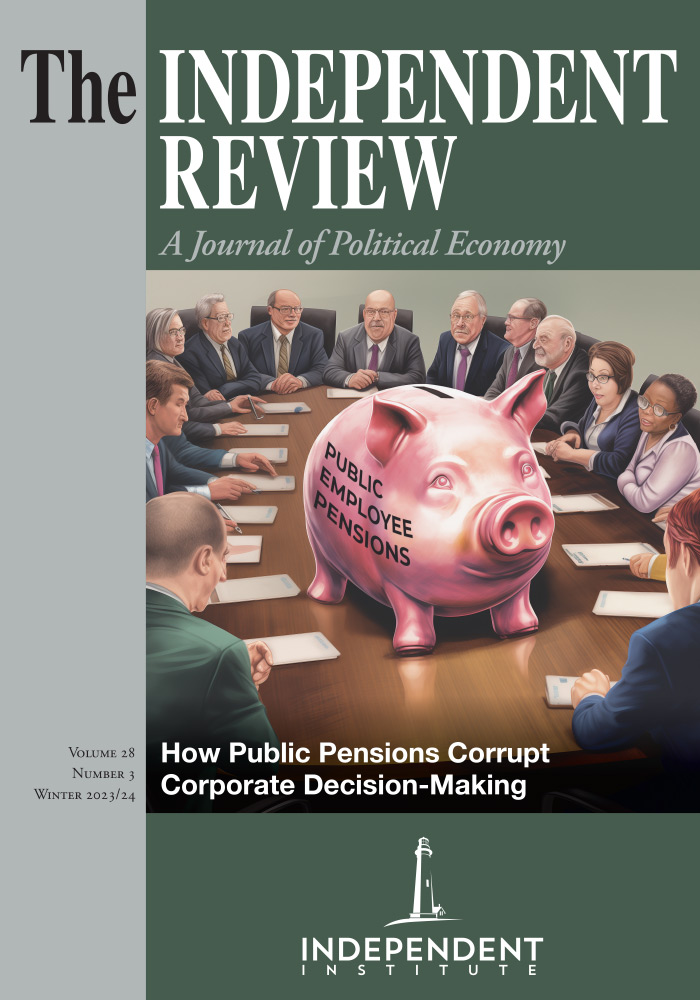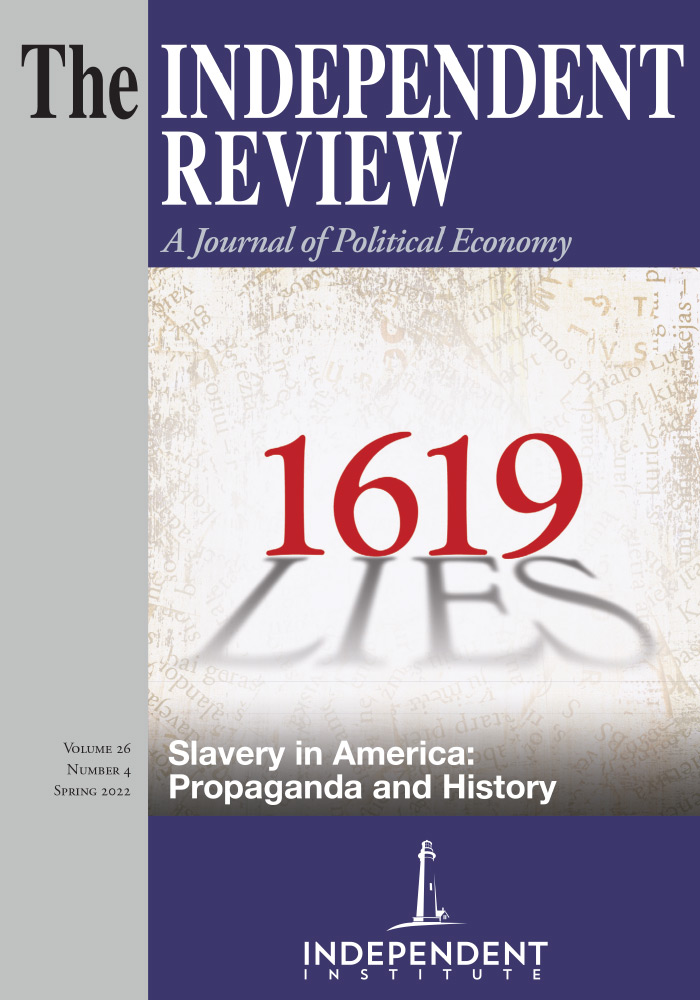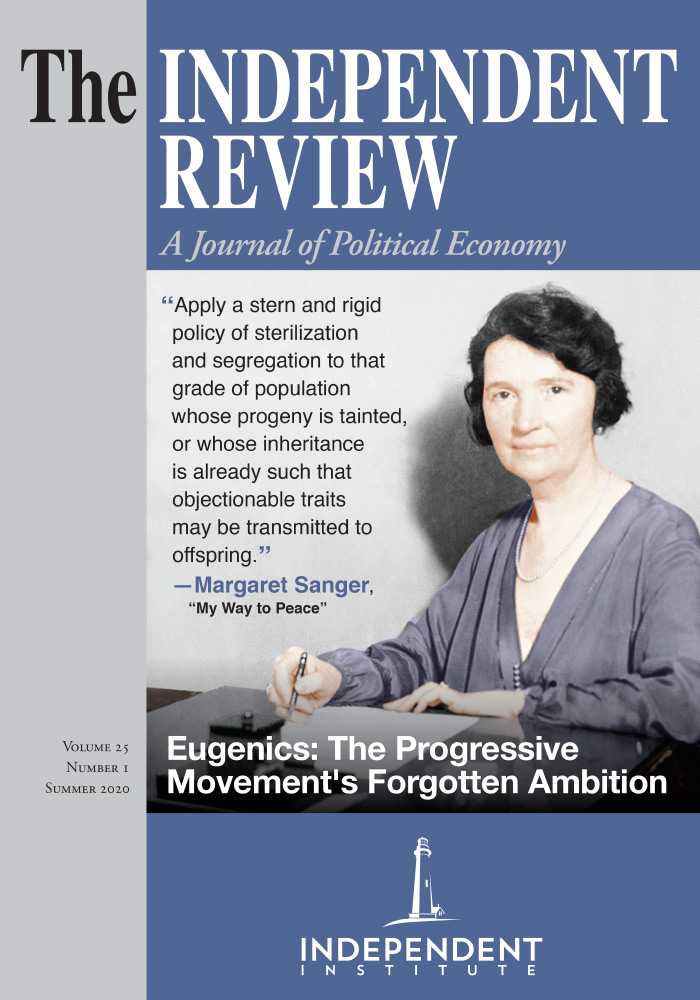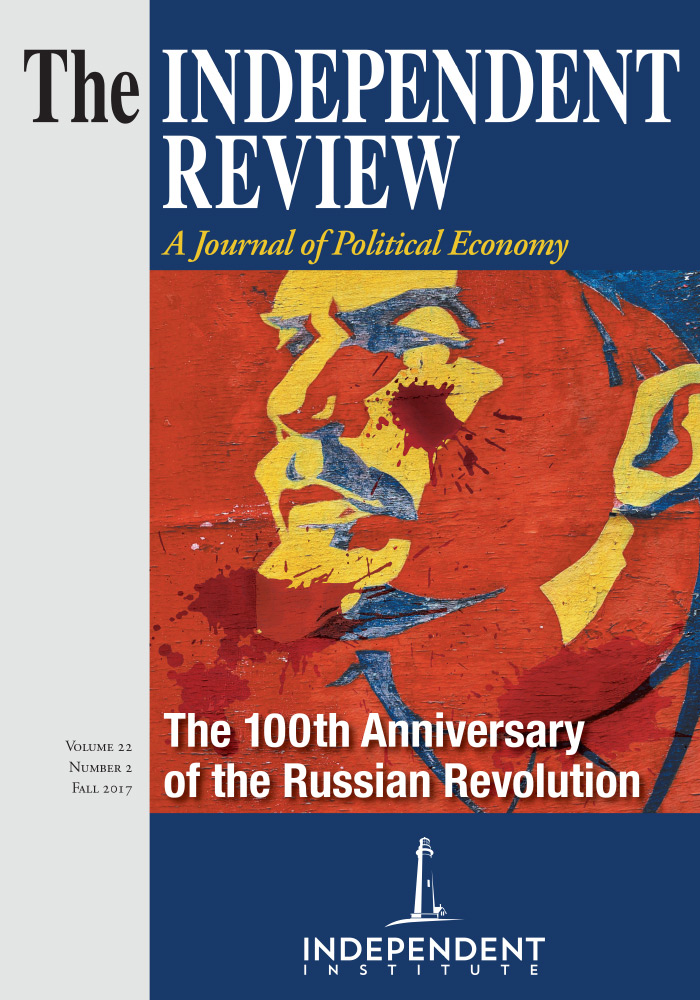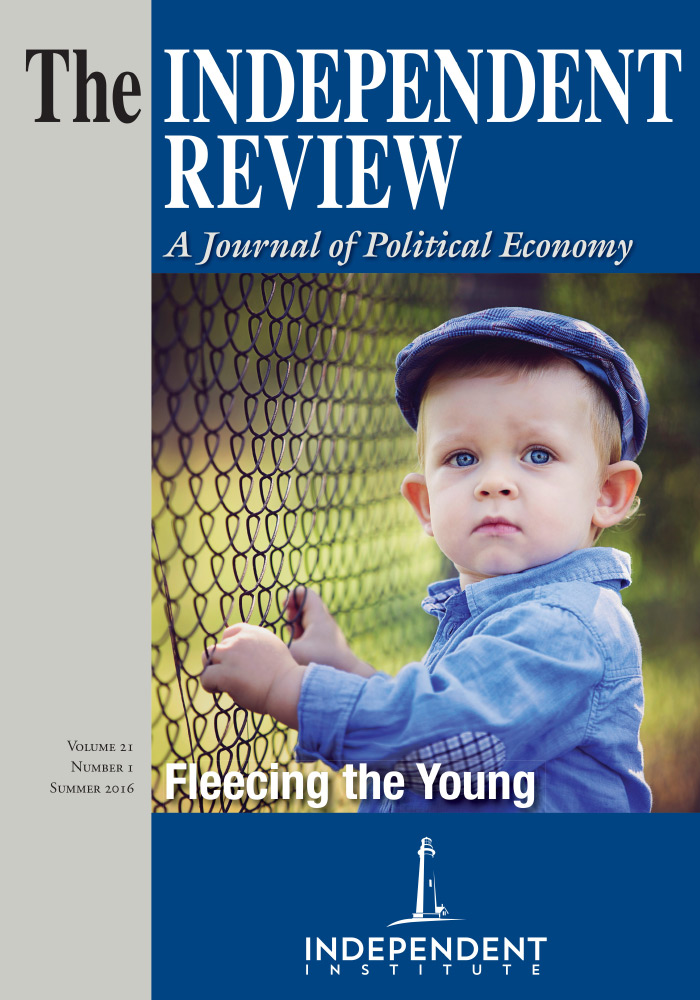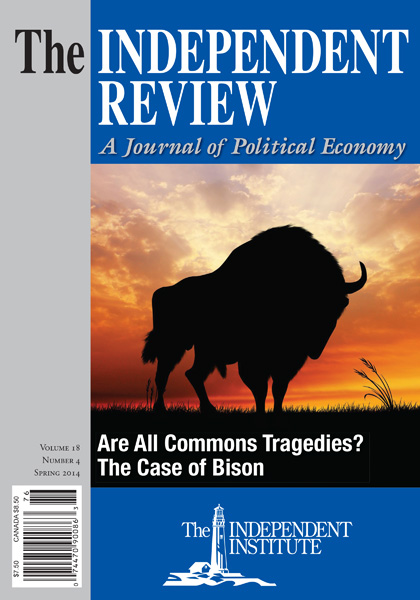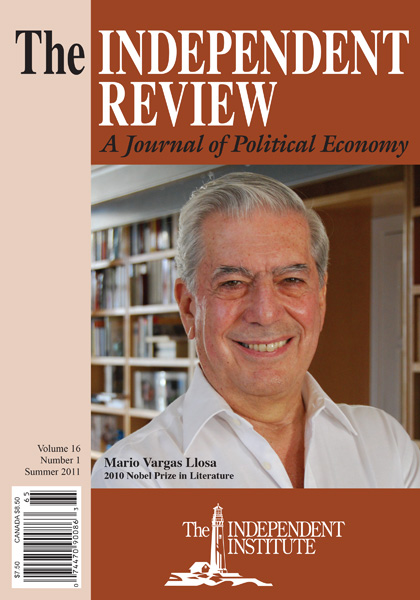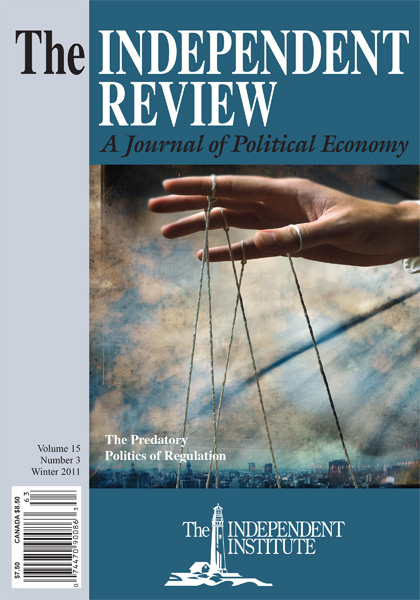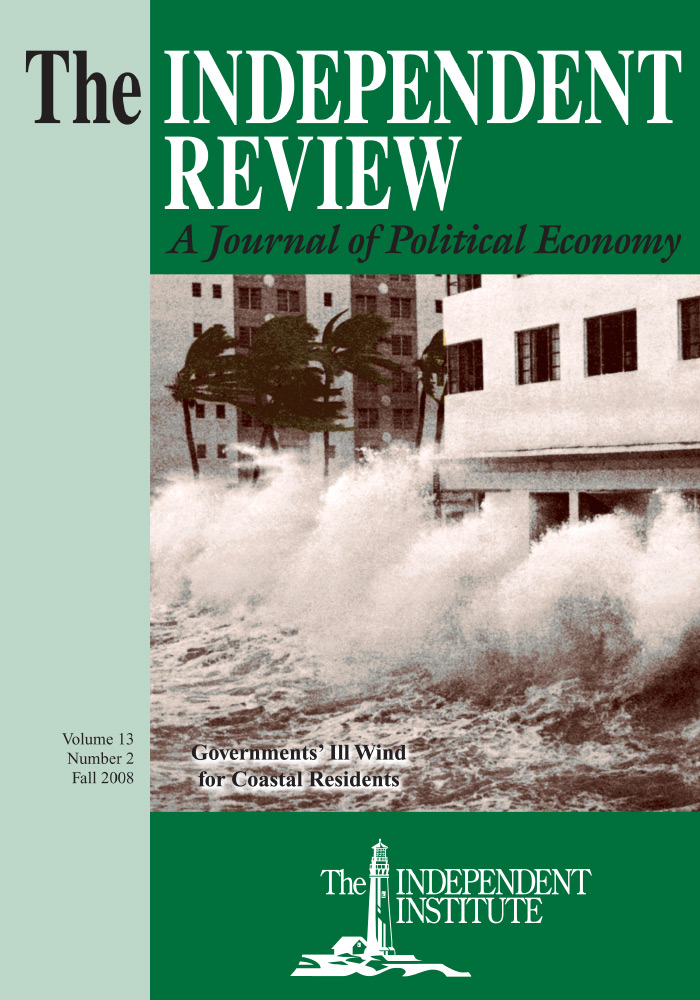Economist and philosopher Goeffrey Brennan—whose books include Democracy and Decision and The Economy of Esteem—was an outstanding thinker, intellectual bridge builder, dinner table raconteur, gifted oenophile, accomplished singer, and lovable human being. He will be greatly missed.
Article
Almost a decade ago, Geoff Brennan and I published a remembrance and analysis of the work of Nobelist James M. Buchanan: (“The Soul of James Buchanan?,” Brennan and Munger 2014). Buchanan’s rule had always been, as we noted, that “titles should be felicitous.” And given that our opening anecdote (“The Ash Wednesday Story”) was gently teasing, we were pleased to be able to talk about Jim’s soul, partly because Jim-the-atheist would have been a little miffed.
Geoff Brennan was not an atheist; in fact, he literally sang the praises of faith and worship when he got the chance, though he did not evangelize in his academic life. I hope that, in this context, my title in the present piece is likewise felicitous. Everything about Geoff Brennan was bright and shiny, and he made everyone around him smarter and happier.
Positions
Australia was not very wealthy in 1944, and it was the center of exactly nothing. Harold G. “Geoff” Brennan was better at everything than most of the people around him. He was good at math; he could dance and sing—appearing semiprofessionally in a variety of theater productions for years—and enjoyed telling stories and playing golf.
Graduating from the Australian National University with first honors in 1966, he considered his options. He took a “temporary” position teaching economics at the ANU in 1968, with only a B.Ec., and that association extended, with some gaps, for the next fifty years.
He could have finished a Ph.D. at several points earlier on, but he really did have a lot of talents, and a lot of different options. In a year that must have felt like “Aussie Lad Goes to the North Pole!,” Geoff spent a year as a visiting research fellow in 1971–72 at Dalhousie University in Halifax, Nova Scotia. But he surrendered to the inevitable in 1976 and filed a thesis entitled “Essays in the Theory of Public Goods and Income Distribution,” under the supervision of Prof. John Head. But the “thesis” was simply papers Geoff had been working on anyway. He didn’t quite just staple together three published pieces he had in a file drawer, but it was something along those lines.
Geoff taught in economics, and then philosophy at the ANU for the rest of his career, with two exceptions. The first is the remarkably productive period he spent at the Public Choice Center, first as a visitor (1976–1977) and then as a professor of economics (1978–1983) at Virginia Tech in Blacksburg, Virginia, with his final few months spent in Fairfax after the Center moved to George Mason University.
The second exception was Geoff’s acceptance of an annual spring semester appointment as the general director of the joint UNC–Duke Philosophy, Politics, and Economics (PPE) Program, starting in January 2005 as the first Nan Keohane Distinguished Visiting Professor. His contributions to the establishment of PPE at UNC and Duke were essential. In terms of publications, his participation in the editing and production of Philosophy, Politics, and Economics: An Anthology (2015) helped play a significant role in the (re)establishment of PPE as an academic endeavor in U.S. colleges and universities. There are more than sixty PPE programs in the United States today, and Geoff’s work and enthusiasm helped bring that about.
Intellectual Contributions
Geoff collaborated; he almost couldn’t help it. A trip to lunch at the faculty club, or a glass of wine at a reception, would turn into a spirited intellectual discussion, with Geoff deftly mixing honest critique and a genuine sense of pleasure at talking about ideas. His enthusiasm was infectious, and all his seven primary published books were coauthored.
His most frequent collaborator was James Buchanan; the reverse was also true, in the sense that Buchanan had more books (three) with Brennan than with any other single coauthor. Two of those books, The Power to Tax (1980) and The Reason of Rules (1985), became standards of the literature in public finance and public choice, together garnering well over eight thousand citations in Google Scholar.
In the 1990s Geoff’s interests turned toward the connections between public choice and the growing field of “behavioral economics.” In Democracy and Decision (with Loren Lomasky 1997), he considered a novel solution to the “paradox of voting” by giving expressive voting a much firmer theoretical foundation. In 2000 Brennan followed up this work with Democratic Devices and Desires, with Alan Hamlin (2009). He extended this perspective with the discipline-crossing book The Economy of Esteem, written with philosopher and political scientist Philip Pettit (2006). His final book, Explaining Norms, with Lina Eriksson, Robert Goodin, and Nicholas Southwood (2013), has implications that are still being explored in research work and laboratory experiments.
Geoff was coeditor of the collected works of James M. Buchanan and was extraordinarily energetic in working to create intellectual bridges. He was the first non-U.S. president of the Public Choice Society in 2002 and helped cofound the European Center for the Study of Public Choice in Rome. Locally, Geoff and his spouse, Margaret, were famous hosts when they were renting Duke’s R. Taylor Cole Guest House on Sylvan Road, near campus. Guests enjoyed not just fellowship and good food but might be an audience for Geoff’s remarkable singing voice, perhaps in a rendition of “Bye, Bye, Blacksburg” or other favorites.
Two Other Things
There are two other things that really stood out about Geoff. One was his status as an oenophile of note; I once spent a chilly August afternoon in his Canberra “wine cellar,” actually part of the home of a relative. I’m afraid I was a great disappointment to him, as I had learned to distinguish types of wine at the level of “red” or “white,” though not if blindfolded. When I visited, I would invariably buy what Australians derisively call a “goon box,” a large box with a gallon plastic bag inside full of wine.
The reviews on goon boxes are scornful, among the cognoscenti. I favored the Coolabah Dry Red, which was described by one wine expert as “a taste that is unique, but not good.” I saw no reason to waste money, when a gallon of Coolabah was about $15 U.S., and I really couldn’t tell much difference. Geoff resolved that he would make it his personal project to save my (dark and grungy) soul from this perdition, and he tried most earnestly. I attended several wine tastings at his house in Isaacs, on the outer reaches of the Australian Capital Territory, with waves of food served by Margaret and flights of wine to be sniffed, tasted, and graded according to criteria that Geoff patiently explained, as if he were speaking to a five-year-old.
And I suppose it was a success. I can now tell a red from a white wine, even if I am blindfolded, about 60 percent of the time, so better than random. But I know of very few other people (John Ferejohn and Douglass North are two exceptions) who had anything like Geoff’s discernment and educated wine palate.
The second thing to know about Geoff was his sense of humor. He was a dinner table raconteur, gesturing with a glass of (excellent) wine and sitting up straight in his chair, with his head held high to give his words the correct arcing trajectory. But there was a reason he told stories, or what might even be called jokes. It was not his object to be the center of attention, though the force of his personality often cast him in that role. The reason he told stories was to teach, and his taste for collecting stories was built on a desire to learn.
I’d like to illustrate this with what I think was Geoffrey’s favorite joke. I have heard him tell it at least twenty times, and every time he then led an impromptu seminar about the force and meaning of the joke (opportunity cost). Sometimes people were offended, either by the joke or the seminar, but more often it was just interesting and diverting. (If I am unable to convey to the reader how an “informal seminar on opportunity cost” at a social dinner was diverting, then that’s my fault; trust me, Geoff could manage it.)
Here is the joke, as best as I can reconstruct it:
A priest, a psychiatrist, and an economist are all great friends, and spend time together when they can. It turns out they are avid golfers, and they play together most Mondays, unless the weather is terrible. They enjoyed trying out the many different golf courses available in their area.
One Monday, they are having their usual round, and on the seventh tee they catch up to the foursome playing ahead of them. Sadly, this group is agonizingly slow, taking forever to find and hit their balls and always playing from the rough and the woods. Worse, they three-putt or fourputt every green.
The threesome are patient for a few holes—hoping that the foursome might call them through. But after the turn at the ninth hole, they get exasperated. On the tenth tee, they blast their drives down the fairway in succession, right into the middle of the foursome, yelling out “Fore!” but knowing they are violating the norms of golf by playing through without warning the group ahead in advance. The foursome in front fall to the ground and put their hands over their heads each time the group behind hits through them.
At this point the marshal hurries up to the tenth tee in his cart. “Pardon me, gentlemen” he shouts, “but I hope you do realize that that group playing ahead of you—they’re all legally blind.”
The priest is horrified. “Here I am,” he says, “supposed to be preaching peace on earth and goodwill towards humanity, and I’m blasting my ball into the midst of these poor blind folk. This is terrible!”
The psychiatrist is embarrassed and remorseful. “You’re right: this is terrible! I am supposed to be listening to people on my couch, relieving them of all their anxieties, and here I am terrorizing these poor guys.”
The economist stares up at the sky for a moment, and then agrees. “You fellows are absolutely right!” he said. “This is terrible! Those blokes should be playing at night!”
Now, the intent of the joke (one imagines) is to make fun of economists, who can’t see the human side of the group’s rather egregious transgression of social norms. Geoff would wait a moment, until the chuckles had passed (the joke is honestly not that funny), and then double down: Not only was this joke not a slam on economists, but in fact it revealed why the economist was the only person who was thinking of the social good!
Both the priest and the psychiatrist reverted to simple solipsism, as if the problem of allocation were “about” their own moral goodness. The economist was the only one who took a societal perspective, pointing out that playing at night (which came early in the Australian winter months of July and August) would have been a better, or at least more efficient, allocation of resources. The visually impaired group was not behaving badly, but the golf course itself should have offered a discount for those who could play at night! The fact that night play was not available meant that resources were being wasted, and the opportunity cost of this foregone opportunity for mutually beneficial exchange was significant.
Not everyone was persuaded of this interpretation, of course. And some people accused Geoff of being heartless and “economistic.” But he ably defended the position, without offending anyone, and then poured some more excellent wine for everyone.
References
Anomaly, Jonathan, Geoffrey Brennan, Michael C. Munger, and Geoffrey Sayre-McCord, eds. 2015. Philosophy, Politics, and Economics: An Anthology. New York: Oxford University Press.
Brennan, Geoffrey, and James M. Buchanan. 1980. The Power to Tax: Analytical Foundations of a Fiscal Constitution. New York: Cambridge University Press.
Brennan, Geoffrey, and James M. Buchanan. 1985. The Reason of Rules: Constitutional Political Economy. New York: Cambridge University Press.
Brennan, Geoffrey, Lina Eriksson, Robert Goodin, and Nicholas Southwood. 2013. Explaining Norms. New York: Oxford University Press.
Brennan, Geoffrey, and Alan Hamlin. 2009. Democratic Devices and Desires. New York: Cambridge University Press.
Brennan, Geoffrey, and Loren Lomasky. 1993. Democracy and Decision: The Pure Theory of Electoral Preference. New York: Cambridge University Press.
Brennan, H. Geoffrey, and Michael Munger. 2014. “The Soul of James Buchanan?” The Independent Review 18, no. 3: 331–42.
Brennan, Geoffrey, and Philip Pettit. 2006. The Economy of Esteem: An Essay on Civil and Political Society. New York: Oxford University Press.
| Other Independent Review articles by Michael C. Munger | ||
| Fall 2024 | Tax Turmoil: A Dia Fenner Economic Thriller | |
| Fall 2024 | Retrieving Liberalism from Rationalist Constructivism, Volume I; Retrieving Liberalism from Rationalist Constructivism, Volume II | |
| Fall 2024 | The Dispersion of Power: A Critical Realist Theory of Democracy | |
| [View All (83)] | ||

